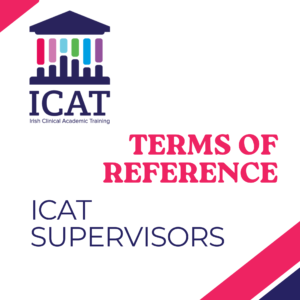Supervisor Database Search
Guidance for ICAT Supervisors
Supervisor Database
Full NameProfessor Paul McNally
Paediatrics
Royal College of Surgeons in Ireland
Webpage:rcsi.com
Email hidden; Javascript is required.
- physiology and non-communicable disease
- clinical trials
- Paediatrics
- Adolescent medicine
- Respiratory Medicine
Paul’s main areas of research interest are in clinical trials, early cystic fibrosis (CF) lung disease and the real-world effects of the new generation of CF treatments (CFTR modulators). Paul has published more than 70 peer reviewed publications and been awarded more than €15M in research grants. One of Paul’s main areas of research interest is in early lung disease in children with Cystic Fibrosis (CF). He established, with colleagues in Ireland, a longitudinal multi-centre study in this area (SHIELD-CF) resulting in several important collaborations and outputs over a ten-year period. Paul has been a local and national lead on more than 20 interventional clinical trials in children with CF. Paul led the design of a longitudinal real-world phase 4 study examining the impact of a new CFTR modulator therapy to children aged 6-11 with CF in Ireland (CFORMS) and is currently leading a multi-centre real-world phase 4 study of triple combination CFTR modulator compounds in 8 centres in the UK and Ireland (RECOVER: NCT04602468). Paul and his team have received funding for a further longitudinal natural history study in children with CF in 13 sites in the UK and Ireland (ENHANCE: NCT05986045) that will run from 2024 to 2029.
https://orcid.org/0000-0001-7102-1712
We have 2 well established longitudinal, real-world clinical research projects in people with CF called RECOVER (adults and children) and ENHANCE (children) (https://realworld4cf.com). These projects are examining the medium and longer term impact of a range of new CF treatments aimed at correcting or improving the basic defect in CF, leading to dramatic changes in outcomes for people with CF. Much is unknown about how this will impact on survival and disease complications in this new era. Both projects span respiratory and gastrointestinal aspects of disease and link with mental health outcomes and the microbiome. These programmes provide a great opportunity for doctoral students in clinical training over many years.

